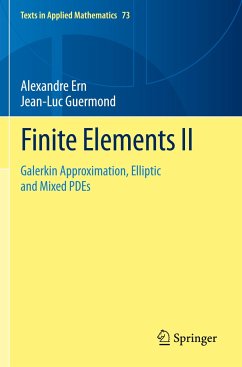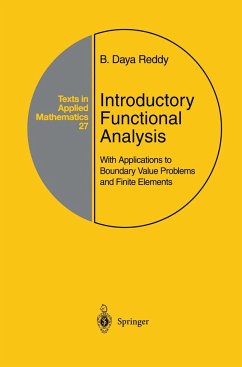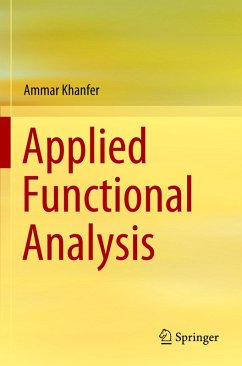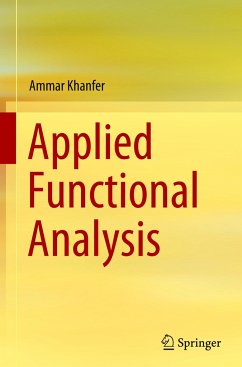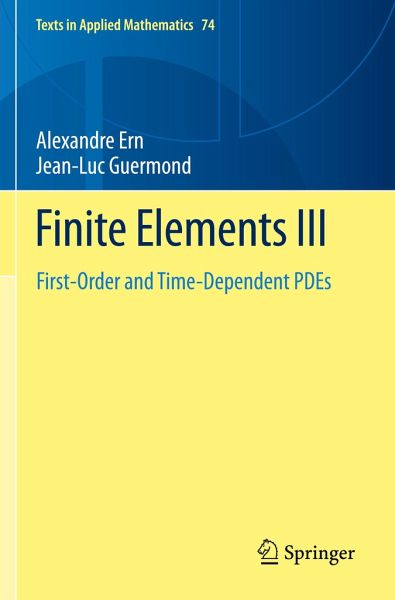
Finite Elements III
First-Order and Time-Dependent PDEs
Versandkostenfrei!
Versandfertig in 6-10 Tagen
53,49 €
inkl. MwSt.
Weitere Ausgaben:

PAYBACK Punkte
0 °P sammeln!
This book is the third volume of a three-part textbook suitable for graduate coursework, professional engineering and academic research. It is also appropriate for graduate flipped classes. Each volume is divided into short chapters. Each chapter can be covered in one teaching unit and includes exercises as well as solutions available from a dedicated website. The salient ideas can be addressed during lecture, with the rest of the content assigned as reading material. To engage the reader, the text combines examples, basic ideas, rigorous proofs, and pointers to the literature to enhance scien...
This book is the third volume of a three-part textbook suitable for graduate coursework, professional engineering and academic research. It is also appropriate for graduate flipped classes. Each volume is divided into short chapters. Each chapter can be covered in one teaching unit and includes exercises as well as solutions available from a dedicated website. The salient ideas can be addressed during lecture, with the rest of the content assigned as reading material. To engage the reader, the text combines examples, basic ideas, rigorous proofs, and pointers to the literature to enhance scientific literacy.
Volume III is divided into 28 chapters. The first eight chapters focus on the symmetric positive systems of first-order PDEs called Friedrichs' systems. This part of the book presents a comprehensive and unified treatment of various stabilization techniques from the existing literature. It discusses applications to advection and advection-diffusion equations and various PDEs written in mixed form such as Darcy and Stokes flows and Maxwell's equations. The remainder of Volume III addresses time-dependent problems: parabolic equations (such as the heat equation), evolution equations without coercivity (Stokes flows, Friedrichs' systems), and nonlinear hyperbolic equations (scalar conservation equations, hyperbolic systems). It offers a fresh perspective on the analysis of well-known time-stepping methods. The last five chapters discuss the approximation of hyperbolic equations with finite elements. Here again a new perspective is proposed. These chapters should convince the reader that finite elements offer a good alternative to finite volumes to solve nonlinear conservation equations.
Volume III is divided into 28 chapters. The first eight chapters focus on the symmetric positive systems of first-order PDEs called Friedrichs' systems. This part of the book presents a comprehensive and unified treatment of various stabilization techniques from the existing literature. It discusses applications to advection and advection-diffusion equations and various PDEs written in mixed form such as Darcy and Stokes flows and Maxwell's equations. The remainder of Volume III addresses time-dependent problems: parabolic equations (such as the heat equation), evolution equations without coercivity (Stokes flows, Friedrichs' systems), and nonlinear hyperbolic equations (scalar conservation equations, hyperbolic systems). It offers a fresh perspective on the analysis of well-known time-stepping methods. The last five chapters discuss the approximation of hyperbolic equations with finite elements. Here again a new perspective is proposed. These chapters should convince the reader that finite elements offer a good alternative to finite volumes to solve nonlinear conservation equations.




